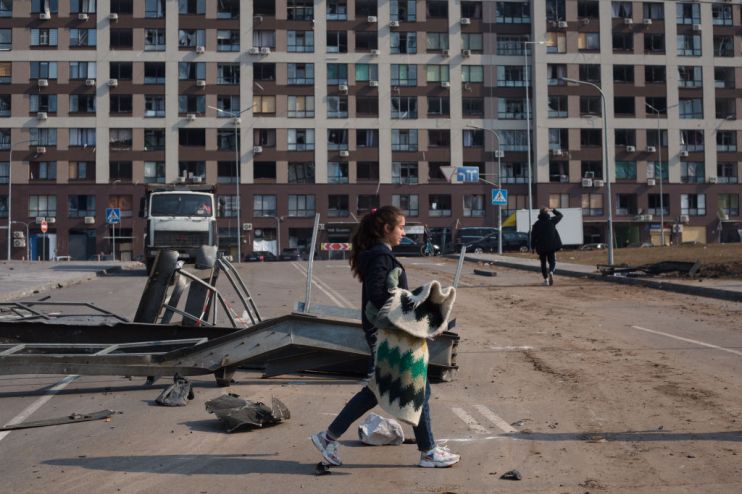Bank of England should use Russian reserves to repair Ukraine economy

The Bank of England should use the Russian central bank’s frozen reserves held at Threadneedle Street to help rebuild the Ukrainian economy.
That’s according to the head of Ukraine’s central bank who today urged governor Andrew Bailey and co to allocate the around £21bn of sanctioned assets to repairing the damage inflicted on Ukraine’s cities by the Russian army.
Kyrylo Shevchenko told The Sunday Telegraph the Bank should use the “funds… as compensation for losses caused by Russia”.
An alliance of western nations froze the Russian central bank’s international assets in a bid to hobble the Russian economy in response to the Kremlin’s invasion of Ukraine.
It is the first time the foreign reserves of a major central bank have been sealed off.
The move was part of a historic set of sanctions which included locking Russian banks out of the Swift global payments system and the US and UK pledging to stop buying Russian oil.
The negative impact of sanctions on the Russian economy are already taking effect, with the rouble, the country’s currency, plummeting to new lows against the dollar.
Central banks can use foreign currency and gold reserves to protect their economy by buying domestic currency-denominated assets to strengthen the value of a currency.
Russia’s central bank has been unable to shield the rouble as a result of not having access to all of its around $630bn war chest of foreign reserves.
“Russia must eventually reimburse the damage it has inflicted through its invasion,” Shevchenko said, adding “I hope that we will receive a large share of funding in the form of reparation, but I also expect significant support from the global community”.